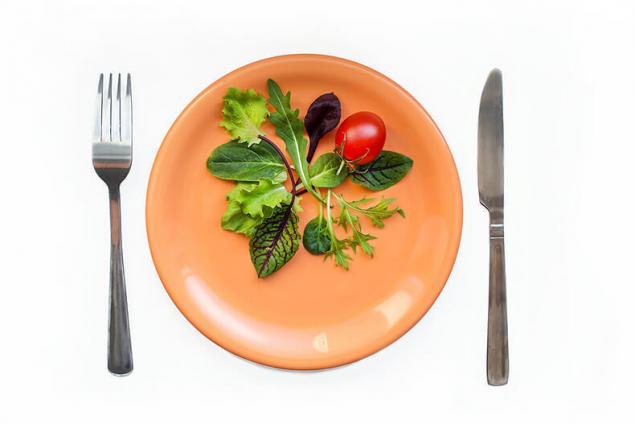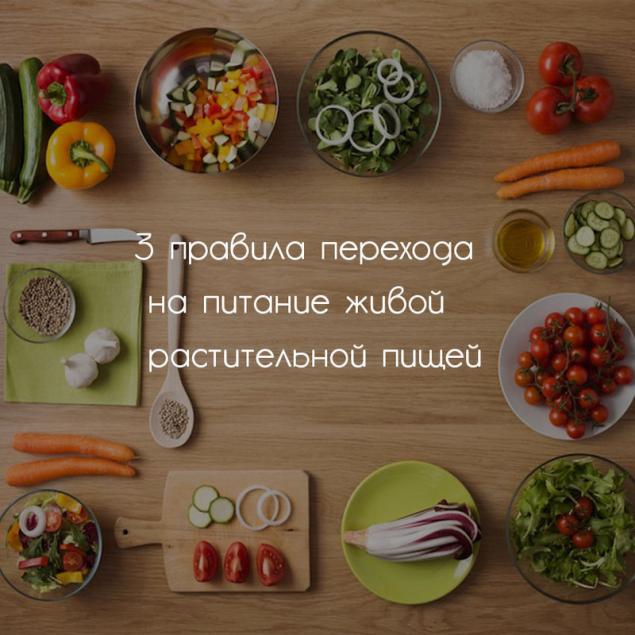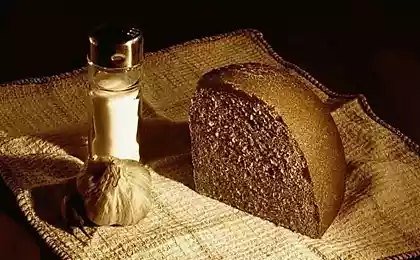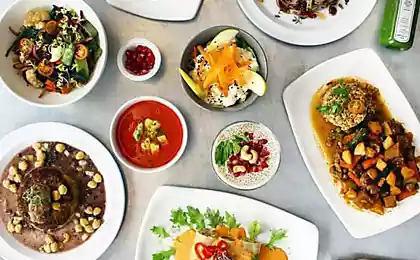651
3 transition rules for food live plant food
When switching to a live food plant food it is necessary to observe three rules.
First, the transition should be gradual, it is undesirable to hurry, step by step to expel the dead food from your diet alive. Do not force yourself, do not give up, but to supplant one for the other.
Second, you need to strictly adhere to the principles of food combining, not mixing incompatible products. I'll tell you a secret, they are almost all incompatible, with the exception of the same type, as in the simplest of salads, for example.
Third, as a consequence of the second rule, the recipes need to be simple and monosyllabic.
Here I post only recipes for main dishes, without which it would be difficult to feed themselves, and without which you will not be able long to hold out on the raw food diet. I call these meals are strategic, because they give the body everything it needs definitely everyday, in the first place. In the rest of the items on his menu, you can unleash the imagination and improvisation.

Living bread
How to prepare:
The wheat mixture into a saucepan, pour to the brim with plain water, mix well, throw out everything that floated to the surface, drain the water. The grain is soaked overnight in a clay pot with water infused with shungit (to fill completely, on top of 5 cm). Wheat should take the Northern varieties (e.g., Siberia), it contains less gluten. South grain usually looks larger, brighter and "fuller". North – smaller, darker and somewhat "wrinkled".
In the morning drain the water, the pot cover and leave to night at room temperature. If the evening is already clear that the grain had sprouted, put the pot in the fridge. If no grain to fill again schungite water, stir, drain and leave in pot until morning at room temperature.
In the morning, the seedlings should be ready for you. The amount of germs should not exceed 1-2 mm. Before use, they should be rinsed with potable water to remove by-products, which are secreted during germination.
Sea Kale cover with cold water, to work properly by an order, the sand sinks to the bottom, put in a colander. Repeat this procedure two more times. The last of the water should be clean potable water. Rinsing the algae need to quickly that they are not greatly to swell.
Grind the algae. Then grind the sprouted wheat seeds twice. Dill, parsley, bell pepper, tomatoes, garlic chopped, add half a Cup of water, seasonings and blend all in a blender at low speed. If tomatoes and peppers, you can replace the same amount of carrots. Cumin seeds must be crushed into a powder.
Soy sauce it is advisable to take Japanese, with low salt and without glutamate sodium. Seasoning for Korean carrot is better for you to do, because in the factory seasoning, add salt and toxic glutamate sodium.
Seasoning for Korean carrot should be mild. Who likes to go for the gusto, you can add a pod of hot pepper, or ground-peas colored peppers (black, white, red, green). Then it all together stir with a spoon in a large bowl.
In a coffee grinder to grind four reception flax seeds. If no seeds, can take the same amount of Flaxseed meal. Pour the flour into a bowl and mix thoroughly with the rest.
Received divide the dough into three parts. Coat a baking sheet with linseed oil. Spread it on a piece of dough and spread with your hands evenly over the entire area, from time to time, moistening the palm, so the dough doesn't stick. Then take a metal spatula and split the dough into squares of 5x5 cm to Grease with butter a second baking sheet, and spread it squares with the first one. Thus, you get three filled the pan. Dry in the oven for 6-8 hours on very low heat while the door is open.
After drying, to give bread to cool and put them in a box, covering them with a paper towel. Living bread will taste better than regular bread. And how they are useful, and even needless to say.

Living oatmeal
How to prepare:
Oats pour into a colander, rinse with running water. Then pour in a large pan schungite water at night. In the morning transfer to the colander and cover with wet gauze in two layers. Evening rinse with a water jet without removing the gauze. The same evening soak the wheat in a pot. The next morning, the oats are rinsed again. Wheat to do the same as in the previous recipe. Evening oats rinse again. The next morning, the oats and the wheat is washed, the sprouts are ready.
So, on the germination of oats takes two days – two times more than that of wheat. The value of sprouts oats should not exceed 1-1.5 see Oats and barley usually germinate irregularly, but this should not bother you, all the necessary conversions in the grain ripen. Most importantly, soak them overnight at least 12 hours. If barley is not a hatch at all, it is better to grow only oats.
Now, the germ load in small portions into the blender, adding water, and grinding to fine fractions, starting from a low speed to highest, just not for very long, not to overheat the device. All it should take 2.5 l of water. Wheat grind twice through a fine lattice, oats once through the middle, but if is not (zazhevyvaya), then through a large grille.
Next, grind in a coffee grinder cumin seeds and fennel. Combine the chopped sprouts and all seasonings in a large bowl and leave for one hour, stirring occasionally. If jelly want to give your children, it is necessary to apply moderately with pepper.
The next step it is necessary to press all the prepared weight. The most convenient option – a simple steamer, consisting of pots and pan grille. Sieve (choose the size), is placed on the tray, poured there and weight and at first a little rubbed with a wooden spatula, and then pressed by hand. The jelly is ready when it flows into the pan. The cake deposited in large bowl. When the whole mass is pressed, the cake is poured into a liter of water, kneaded, and pressed again through the same sieve.
The result is 4 liters of jelly with the consistency of good cream. You can pour it into bottles and put into the refrigerator. Store no more than two weeks. In the refrigerator, on the third day, the jelly slightly podcast and acquires a pleasant taste, sour. Before use, the bottle shake well.
Living the jelly is a biologically active product, so take it should be careful at first, gradually accustom your body, and do not mix with other foods. If it causes indigestion, it means that the gut is heavily infested. What to do? To clean the intestines. Or to continue to eat dead foods and living to forget. Then everything will be as before, "fine."
Sauerkraut without salt
Recipes sauerkraut without salt are widely known. However, when I tried to follow them, I have nothing good came of it. So we had to develop our own technology, which they cite, and which it is better not to deviate. To add to the recipe some other ingredients, it makes no sense, because the flavor only gets distorted in an undesirable way.
How to prepare:
Cabbage chop coarsely (about 4 cm), and carrots cut into slices. Cabbage stalks near the stem cut and discarded, the stalk cut. Mix all together with seasonings in a large pot. Mashing is not necessary.
At the bottom of two three-liter cans put on the cabbage leaf. Tightly fill both cans to the bottle remained not less than 10 cm, and close the top with cabbage leaves.
Pour cans of distilled or plain drinking water to cover the leaves. Banks to put a narrow half-liter plastic bottles filled with water as cargo. Cover it with cotton cloth.
The water should cover the leaves so they did not have access to air. Put in a warm place with a temperature of 25-27 degrees Celsius. After some time, the water in the banks will rise. If it starts to overflow, reduce the load, or even remove it.
The exposure time from two to three days. This time depends on all components and conditions, and it is necessary to determine intuitively. If you nethergate, cabbage do not ripen. If overexposed, will be soft and acidic. In any case, you can let it Mature in the fridge. Before put into the refrigerator, each jar should be put on a shungite stone. And of course, the water should cover the leaves. You can eat in a week store in the refrigerator.
Sauerkraut without salt is, perhaps, the only exception to the strict rules of raw cuisine, which is not recommended for systematic use "leavened" foods.
Seaweed
How to prepare:
Seaweed cut with scissors (as long there are awkward), rinse in three waters to the sand settle to the bottom, shifting every once in a colander. The last third of the water should be clean potable water. (And if from the tap is flowing chlorinated, then the water should be settled, preferably shungit clean.) In the last water, algae need to hold for a minute or two, no more than that they are fairly, but not too swollen. If you overdo, they will become tasteless.
Put in a colander and let the water drain out. Then add seasonings, oil, (if not cedar, sesame or flax – cold pressed), mix well. Sea Kale is prepared. Obviously, cook is not only pointless and harmful, and just plain stupid, because all the taste is lost.
The vibrant green soup
How to prepare:
Chop tomatoes, bell pepper, garlic, radishes, dill, parsley, onions, load it into the blender. Add crushed dried seaweed (kelp that is sold in pharmacies), seasoning, butter, lemon juice and a glass of water. For spice and flavor you can add chopped at the mill polka dot colored peppers (black, white, red, green).
To turn on the blender for a minute on medium speed. Then slice the remaining tops of all kinds (even the tops of the garlic, sorrel, etc.), the only way to not overload the blender, and run it first on medium speed, then high.
Vegetable greens contains tens to hundreds times more protein, vitamins and minerals than vegetables. Especially useful spinach. This soup has a very high nutritional value and cleans the body. If you feel a jerking in the liver, this means, stones of you out.
A lively vinaigrette
How to prepare:
Cabbage divided into small florets. Carrots and beets to plane the strips. Onions cut into slices, tomatoes – small cubes. Press out the garlic with a masher. You can even put fresh or frozen green peas.
In the winter you can chop a little bit of sauerkraut. All is download in a large bowl and mix well, adding the seasoning. For sharpness you can add a bit of Cayenne pepper (Chile). Then pour soy sauce, vinegar and stir. Last pour in the oil and mix again.
Live chops
How to prepare:
Millet soak for 12 hours in shungite water. Then place the mixture in a fine metal sieve in the form of a Cup and cover with wet gauze in two layers. Now soak the seeds in shungite water. After half a day you can start making. Millet should arise, to germinate the seeds is not necessary.
On the grinder to put a small grate and grind the seeds first, then quickly falling asleep, millet, (so it could not fly out of the grate), to grind it twice. After that, grind the carrot, tomato, bell pepper and garlic. The greens are finely chopped. Add seasoning, soy sauce, oil and mix well in a large bowl. For spice and flavor you can add chopped at the mill polka dot colored peppers (black, white, red, green).
Flax seeds grind in a coffee grinder. Put half of Flaxseed meal to the dough and stir again. After that, you can make patties, roll them in flax flour, put in a food container and put into the refrigerator. Serve with tomato sauce.
A recipe for tomato sauce. Three large tomatoes, two bell peppers, a head of garlic, pod of hot pepper or half a teaspoon of ground of red, two or three tablespoons of soy sauce, and one or two tablespoons of horseradish, mix in blender.
Winter salad
How to prepare:
Frozen beans and peas to fill in for three minutes and cold water. Drain the water, add seasoning, oil and mix.
In General, frozen vegetables are not quite natural food. But in the winter, for lack of a better, you can settle for that. Usually, almost all vegetables are blanched before freezing – that is, killed. Except for green peas and beans, as far as I know. But maybe I'm wrong. Does anyone have access to this secret information? Who can respond credibly and accurately: what they do with the vegetables before freezing, and do it on all plants? Respond.
Live halva
How to prepare:
Hazelnuts and almonds to soak for 12 hours in shungite water. Walnuts do not need to soak. Grind nuts and bread in a meat grinder twice. Add honey, mix everything and put into the refrigerator.
Flower pollen. Pollen need to prepare in the summer for the winter in sufficient quantity. On the air, it quickly loses its properties, so it can honey. Does one part of honey and two to three amount of pollen, mixed and routed to the banks. The sealed cans stored in a cool place.
If the honey has thickened greatly, (good honey is liquid not more than three weeks), it can be gently stew simmering the container in warm water with temperature not exceeding 41 degrees Celsius.
How to cook Kale: healthy recipes8 gold recipes for rejuvenating the body
Every day you need to eat three or four or even five tablespoons. Pollen provides the body with all essential vitamins and minerals, and makes blood vessels elastic, so that the stroke will not die. Besides, it is very rich in protein. Pollen full losing weight, and lean better.
Perha. Ambrosia is also conserved with honey. Not buy pure ambrosia, no honeycombs or honey – it very quickly loses its properties. Pollen in the comb is ground in a meat grinder and mixed with honey. For one, the weight of the pollen is taken two weight of honey. This bee bread. Perfect food. It has everything the body needs.published
©Vadim Zeland
Source: subscribe.ru/archive/psychology.zeland/200908/20103324.html
First, the transition should be gradual, it is undesirable to hurry, step by step to expel the dead food from your diet alive. Do not force yourself, do not give up, but to supplant one for the other.
Second, you need to strictly adhere to the principles of food combining, not mixing incompatible products. I'll tell you a secret, they are almost all incompatible, with the exception of the same type, as in the simplest of salads, for example.
Third, as a consequence of the second rule, the recipes need to be simple and monosyllabic.
Here I post only recipes for main dishes, without which it would be difficult to feed themselves, and without which you will not be able long to hold out on the raw food diet. I call these meals are strategic, because they give the body everything it needs definitely everyday, in the first place. In the rest of the items on his menu, you can unleash the imagination and improvisation.

Living bread
- Wheat 400 g
- Dried seaweed 100 g
- Flax seeds 2 cups
- Tomatoes 2 pieces
- Bulgarian pepper 1 PC.
- Garlic 1 head
- A small bunch of dill and parsley
- Cumin seeds 1 teaspoon
- Ground coriander 1 Dec. spoon
- Seasoning for Korean carrot 1 Dec. spoon
- Soy sauce (Japanese) 4-5 tablespoons
- Water half a Cup
How to prepare:
The wheat mixture into a saucepan, pour to the brim with plain water, mix well, throw out everything that floated to the surface, drain the water. The grain is soaked overnight in a clay pot with water infused with shungit (to fill completely, on top of 5 cm). Wheat should take the Northern varieties (e.g., Siberia), it contains less gluten. South grain usually looks larger, brighter and "fuller". North – smaller, darker and somewhat "wrinkled".
In the morning drain the water, the pot cover and leave to night at room temperature. If the evening is already clear that the grain had sprouted, put the pot in the fridge. If no grain to fill again schungite water, stir, drain and leave in pot until morning at room temperature.
In the morning, the seedlings should be ready for you. The amount of germs should not exceed 1-2 mm. Before use, they should be rinsed with potable water to remove by-products, which are secreted during germination.
Sea Kale cover with cold water, to work properly by an order, the sand sinks to the bottom, put in a colander. Repeat this procedure two more times. The last of the water should be clean potable water. Rinsing the algae need to quickly that they are not greatly to swell.
Grind the algae. Then grind the sprouted wheat seeds twice. Dill, parsley, bell pepper, tomatoes, garlic chopped, add half a Cup of water, seasonings and blend all in a blender at low speed. If tomatoes and peppers, you can replace the same amount of carrots. Cumin seeds must be crushed into a powder.
Soy sauce it is advisable to take Japanese, with low salt and without glutamate sodium. Seasoning for Korean carrot is better for you to do, because in the factory seasoning, add salt and toxic glutamate sodium.
Seasoning for Korean carrot should be mild. Who likes to go for the gusto, you can add a pod of hot pepper, or ground-peas colored peppers (black, white, red, green). Then it all together stir with a spoon in a large bowl.
In a coffee grinder to grind four reception flax seeds. If no seeds, can take the same amount of Flaxseed meal. Pour the flour into a bowl and mix thoroughly with the rest.
Received divide the dough into three parts. Coat a baking sheet with linseed oil. Spread it on a piece of dough and spread with your hands evenly over the entire area, from time to time, moistening the palm, so the dough doesn't stick. Then take a metal spatula and split the dough into squares of 5x5 cm to Grease with butter a second baking sheet, and spread it squares with the first one. Thus, you get three filled the pan. Dry in the oven for 6-8 hours on very low heat while the door is open.
After drying, to give bread to cool and put them in a box, covering them with a paper towel. Living bread will taste better than regular bread. And how they are useful, and even needless to say.

Living oatmeal
- Unshelled oat kernels (in shell) 800 g
- (or 400g of oats and 400 g of barley, also unshelled)
- Wheat 200 g
- Cumin seeds 1 tablespoon
- Fennel seeds 1 tbsp
- Seasoning for Korean carrot 1 tbsp
- Ground Cayenne pepper (Chile) 1/2 teaspoon
- Drinking water 3.5 l
How to prepare:
Oats pour into a colander, rinse with running water. Then pour in a large pan schungite water at night. In the morning transfer to the colander and cover with wet gauze in two layers. Evening rinse with a water jet without removing the gauze. The same evening soak the wheat in a pot. The next morning, the oats are rinsed again. Wheat to do the same as in the previous recipe. Evening oats rinse again. The next morning, the oats and the wheat is washed, the sprouts are ready.
So, on the germination of oats takes two days – two times more than that of wheat. The value of sprouts oats should not exceed 1-1.5 see Oats and barley usually germinate irregularly, but this should not bother you, all the necessary conversions in the grain ripen. Most importantly, soak them overnight at least 12 hours. If barley is not a hatch at all, it is better to grow only oats.
Now, the germ load in small portions into the blender, adding water, and grinding to fine fractions, starting from a low speed to highest, just not for very long, not to overheat the device. All it should take 2.5 l of water. Wheat grind twice through a fine lattice, oats once through the middle, but if is not (zazhevyvaya), then through a large grille.
Next, grind in a coffee grinder cumin seeds and fennel. Combine the chopped sprouts and all seasonings in a large bowl and leave for one hour, stirring occasionally. If jelly want to give your children, it is necessary to apply moderately with pepper.
The next step it is necessary to press all the prepared weight. The most convenient option – a simple steamer, consisting of pots and pan grille. Sieve (choose the size), is placed on the tray, poured there and weight and at first a little rubbed with a wooden spatula, and then pressed by hand. The jelly is ready when it flows into the pan. The cake deposited in large bowl. When the whole mass is pressed, the cake is poured into a liter of water, kneaded, and pressed again through the same sieve.
The result is 4 liters of jelly with the consistency of good cream. You can pour it into bottles and put into the refrigerator. Store no more than two weeks. In the refrigerator, on the third day, the jelly slightly podcast and acquires a pleasant taste, sour. Before use, the bottle shake well.
Living the jelly is a biologically active product, so take it should be careful at first, gradually accustom your body, and do not mix with other foods. If it causes indigestion, it means that the gut is heavily infested. What to do? To clean the intestines. Or to continue to eat dead foods and living to forget. Then everything will be as before, "fine."
Sauerkraut without salt
- Two small heads of cabbage
- (white and green)
- 800-900 grams of carrots
- Cumin seeds 1 tbsp
- Fennel seeds 1 tbsp
- Seasoning for Korean carrot 1 tbsp
- Cayenne pepper (Chile) 1/2 teaspoon
- Dry dill and parsley 1 tbsp. spoon with the top of
Recipes sauerkraut without salt are widely known. However, when I tried to follow them, I have nothing good came of it. So we had to develop our own technology, which they cite, and which it is better not to deviate. To add to the recipe some other ingredients, it makes no sense, because the flavor only gets distorted in an undesirable way.
How to prepare:
Cabbage chop coarsely (about 4 cm), and carrots cut into slices. Cabbage stalks near the stem cut and discarded, the stalk cut. Mix all together with seasonings in a large pot. Mashing is not necessary.
At the bottom of two three-liter cans put on the cabbage leaf. Tightly fill both cans to the bottle remained not less than 10 cm, and close the top with cabbage leaves.
Pour cans of distilled or plain drinking water to cover the leaves. Banks to put a narrow half-liter plastic bottles filled with water as cargo. Cover it with cotton cloth.
The water should cover the leaves so they did not have access to air. Put in a warm place with a temperature of 25-27 degrees Celsius. After some time, the water in the banks will rise. If it starts to overflow, reduce the load, or even remove it.
The exposure time from two to three days. This time depends on all components and conditions, and it is necessary to determine intuitively. If you nethergate, cabbage do not ripen. If overexposed, will be soft and acidic. In any case, you can let it Mature in the fridge. Before put into the refrigerator, each jar should be put on a shungite stone. And of course, the water should cover the leaves. You can eat in a week store in the refrigerator.
Sauerkraut without salt is, perhaps, the only exception to the strict rules of raw cuisine, which is not recommended for systematic use "leavened" foods.
Seaweed
- Dried seaweed 100 g
- Seasoning for Korean carrot (mild) 1 teaspoon
- Soy sauce (Japanese) 1-2 tbsp.
- Natural Apple cider vinegar 1 Dec. spoon
- Cedar oil 1 Dec. spoon
How to prepare:
Seaweed cut with scissors (as long there are awkward), rinse in three waters to the sand settle to the bottom, shifting every once in a colander. The last third of the water should be clean potable water. (And if from the tap is flowing chlorinated, then the water should be settled, preferably shungit clean.) In the last water, algae need to hold for a minute or two, no more than that they are fairly, but not too swollen. If you overdo, they will become tasteless.
Put in a colander and let the water drain out. Then add seasonings, oil, (if not cedar, sesame or flax – cold pressed), mix well. Sea Kale is prepared. Obviously, cook is not only pointless and harmful, and just plain stupid, because all the taste is lost.
The vibrant green soup
- Tomatoes 2 pieces
- Bell pepper half
- Garlic 2-3 cloves
- Radishes 4-5 pieces (or one small turnip)
- A good bunch of dill
- A good bunch of parsley
- Beet tops, radishes, carrots, onions, spinach – a small bunch
- Seasoning for Korean carrot 1 teaspoon
- Chopped dried seaweed 1 tbsp. spoon with the top of
- The juice of the third lemon (or 2 tablespoons natural Apple cider vinegar)
- Amaranth oil (cedar, flax or sesame) 1 tbsp
- Water 1 Cup
How to prepare:
Chop tomatoes, bell pepper, garlic, radishes, dill, parsley, onions, load it into the blender. Add crushed dried seaweed (kelp that is sold in pharmacies), seasoning, butter, lemon juice and a glass of water. For spice and flavor you can add chopped at the mill polka dot colored peppers (black, white, red, green).
To turn on the blender for a minute on medium speed. Then slice the remaining tops of all kinds (even the tops of the garlic, sorrel, etc.), the only way to not overload the blender, and run it first on medium speed, then high.
Vegetable greens contains tens to hundreds times more protein, vitamins and minerals than vegetables. Especially useful spinach. This soup has a very high nutritional value and cleans the body. If you feel a jerking in the liver, this means, stones of you out.
A lively vinaigrette
- Cauliflower or broccoli, small head
- Beets 1 PC.
- Carrots 2-3 PCs.
- Onions 1 PC.
- Garlic cloves 2-3-4
- Tomatoes 3-4 pieces.
- Seasoning for Korean carrot (mild) 1 tbsp
- Soy sauce (Japanese) 2 tbsp.
- Natural Apple cider vinegar 2 tablespoons (or the juice of the third lemon)
- Amaranth oil (cedar, flax or sesame) 2 tbsp.
How to prepare:
Cabbage divided into small florets. Carrots and beets to plane the strips. Onions cut into slices, tomatoes – small cubes. Press out the garlic with a masher. You can even put fresh or frozen green peas.
In the winter you can chop a little bit of sauerkraut. All is download in a large bowl and mix well, adding the seasoning. For sharpness you can add a bit of Cayenne pepper (Chile). Then pour soy sauce, vinegar and stir. Last pour in the oil and mix again.
Live chops
- Yellow millet in sheath 200 g
- Pumpkin seeds peeled 200 g
- Peeled sunflower seeds 200 g
- Flax seeds 1 Cup
- Carrots 2 PCs.
- Garlic 1 head
- Tomato 1 PC.
- Bulgarian pepper 1 PC.
- Dill, parsley, green onion – small bundles
- Seasoning for Korean carrot 1 tbsp. spoon with the top of
- Soy sauce (Japanese) 3-4 tbsp.
- Linseed oil 2 tbsp.
How to prepare:
Millet soak for 12 hours in shungite water. Then place the mixture in a fine metal sieve in the form of a Cup and cover with wet gauze in two layers. Now soak the seeds in shungite water. After half a day you can start making. Millet should arise, to germinate the seeds is not necessary.
On the grinder to put a small grate and grind the seeds first, then quickly falling asleep, millet, (so it could not fly out of the grate), to grind it twice. After that, grind the carrot, tomato, bell pepper and garlic. The greens are finely chopped. Add seasoning, soy sauce, oil and mix well in a large bowl. For spice and flavor you can add chopped at the mill polka dot colored peppers (black, white, red, green).
Flax seeds grind in a coffee grinder. Put half of Flaxseed meal to the dough and stir again. After that, you can make patties, roll them in flax flour, put in a food container and put into the refrigerator. Serve with tomato sauce.
A recipe for tomato sauce. Three large tomatoes, two bell peppers, a head of garlic, pod of hot pepper or half a teaspoon of ground of red, two or three tablespoons of soy sauce, and one or two tablespoons of horseradish, mix in blender.
Winter salad
- Frozen green peas 150 g
- Frozen green beans 150 g
- Seasoning for Korean carrot 1 teaspoon
- Soy sauce (Japanese) 1 tablespoon
- Oil of cedar 1 Dec. spoon
How to prepare:
Frozen beans and peas to fill in for three minutes and cold water. Drain the water, add seasoning, oil and mix.
In General, frozen vegetables are not quite natural food. But in the winter, for lack of a better, you can settle for that. Usually, almost all vegetables are blanched before freezing – that is, killed. Except for green peas and beans, as far as I know. But maybe I'm wrong. Does anyone have access to this secret information? Who can respond credibly and accurately: what they do with the vegetables before freezing, and do it on all plants? Respond.
Live halva
- Walnut 200 g
- Hazelnut 200 g
- Almonds 200 g
- Honey 200 g
- Pollen in the comb 70-80 g
How to prepare:
Hazelnuts and almonds to soak for 12 hours in shungite water. Walnuts do not need to soak. Grind nuts and bread in a meat grinder twice. Add honey, mix everything and put into the refrigerator.
Flower pollen. Pollen need to prepare in the summer for the winter in sufficient quantity. On the air, it quickly loses its properties, so it can honey. Does one part of honey and two to three amount of pollen, mixed and routed to the banks. The sealed cans stored in a cool place.
If the honey has thickened greatly, (good honey is liquid not more than three weeks), it can be gently stew simmering the container in warm water with temperature not exceeding 41 degrees Celsius.
How to cook Kale: healthy recipes8 gold recipes for rejuvenating the body
Every day you need to eat three or four or even five tablespoons. Pollen provides the body with all essential vitamins and minerals, and makes blood vessels elastic, so that the stroke will not die. Besides, it is very rich in protein. Pollen full losing weight, and lean better.
Perha. Ambrosia is also conserved with honey. Not buy pure ambrosia, no honeycombs or honey – it very quickly loses its properties. Pollen in the comb is ground in a meat grinder and mixed with honey. For one, the weight of the pollen is taken two weight of honey. This bee bread. Perfect food. It has everything the body needs.published
©Vadim Zeland
Source: subscribe.ru/archive/psychology.zeland/200908/20103324.html























